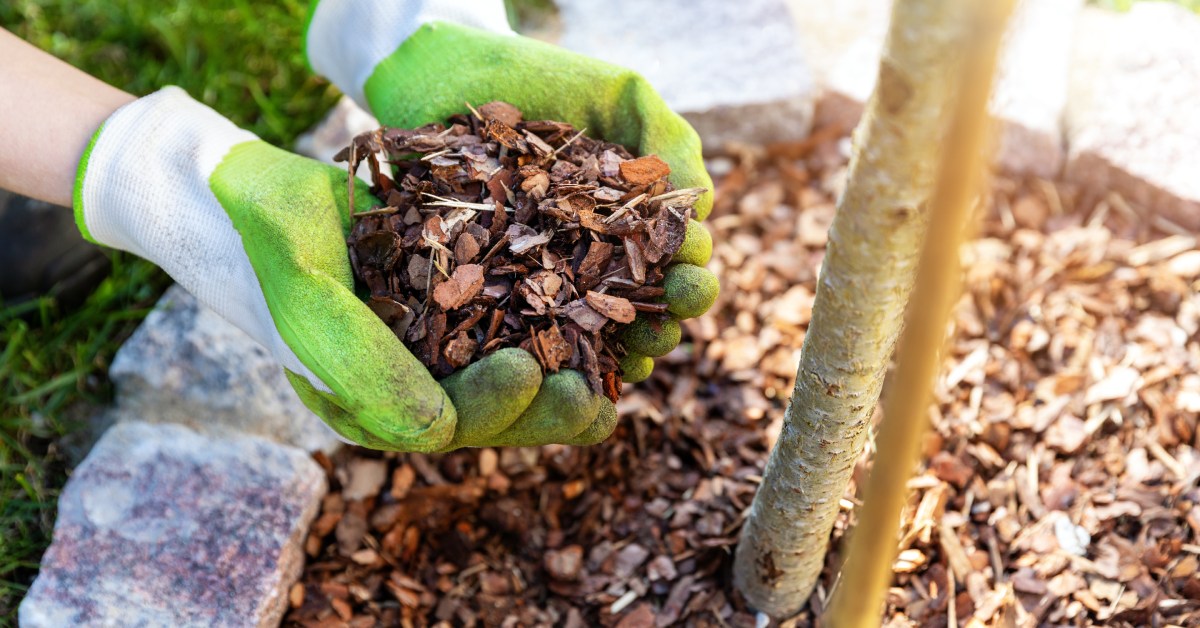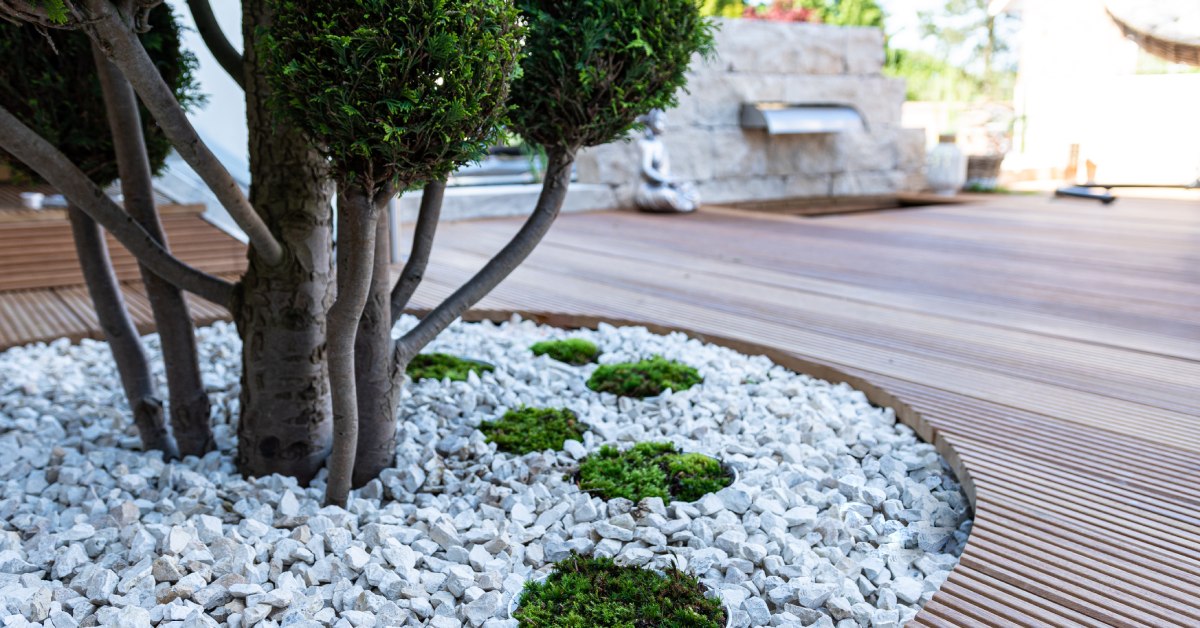Maintaining the health of your trees is crucial for a vibrant, thriving landscape. One of the most effective ways to do this is through the use of mulch. We’ll explore the different types of mulch and their impact on tree health. We’ll also provide practical tips to help you choose the best mulch for your landscape, ensuring your trees remain healthy and strong.
What Is Mulch?
Mulch is a layer of material applied to the surface of the soil. It serves various purposes, including conserving soil moisture and reducing weed growth. Mulch can be made from organic or inorganic materials, each offering unique benefits. By understanding what mulch is and how it works, you can make informed decisions about the best options for your landscape.
Different Types of Mulch
Many types of mulch are available, each with its own set of characteristics. These can be broadly categorized into organic and inorganic mulches. Organic mulches are composed of natural materials that decompose over time, enriching the soil with nutrients. Inorganic mulches, on the other hand, are made from synthetic or non-decomposable materials. Each type of mulch has its advantages and disadvantages, which we’ll explore in detail in the following sections.
Organic Mulches
Organic mulches are derived from natural materials such as wood, leaves, and grass clippings. These mulches break down over time, adding valuable nutrients to the soil and improving its structure. As they decompose, they enrich the soil with organic matter, enhancing its ability to retain moisture and support beneficial microorganisms.
Organic mulches can create a healthier environment for your trees, promoting robust growth and overall vitality. Organic mulches also help suppress weeds, reducing competition for water and nutrients.
Additionally, organic mulches tend to be more aesthetically pleasing, blending seamlessly with the natural landscape and providing a finished look to gardening spaces. Embracing organic mulching benefits your plants and supports sustainable gardening practices.
Bark

Bark mulch is a popular choice among homeowners due to its attractive appearance and numerous benefits. Made from the outer layer of trees, bark mulch is available in various sizes and textures. One of the main advantages of bark mulch is its ability to retain moisture, keeping the soil cool and moist.
However, bark mulch can be expensive and require frequent replenishment as it decomposes. Despite these drawbacks, bark mulch remains a top choice for many, thanks to its excellent moisture retention and natural look.
Wood Chips
Wood chip mulch is another excellent option for tree health. Wood chips are coarser than bark mulch and are produced from tree branches and trunks but still offer many of the same benefits. Wood chips help retain soil moisture, regulate soil temperature, and suppress weed growth.
One downside is that wood chips can sometimes attract pests, such as termites. However, when sourced from reputable suppliers, wood chips can provide long-lasting benefits for your trees, enhancing their health and stability.
Leaves
Mulch made of leaves is an eco-friendly and cost-effective option for homeowners. Collecting and shredding fallen leaves can create a nutrient-rich mulch that benefits your trees in numerous ways. Leaf mulch improves soil structure, retains moisture, and encourages beneficial microorganisms.
One potential drawback is that leaf mulch can become compacted if not correctly managed, reducing its effectiveness. Nevertheless, leaf mulch remains a sustainable and practical choice for promoting tree health.
Inorganic Mulch
Inorganic mulches are made from materials that do not decompose, such as stones, rubber, and plastic. These mulches offer unique advantages, such as longer-lasting coverage and minimal maintenance. Unlike organic mulches that break down over time and need regular replenishment, inorganic mulches remain intact, providing consistent protection against weeds and soil erosion.
However, they do not provide the same soil-enriching benefits as organic mulches, which contribute valuable nutrients as they decompose. Additionally, inorganic mulches can sometimes lead to soil compaction and increased heat retention, which may not be suitable for all plant types.
By understanding the pros and cons of inorganic mulches, including their longevity and maintenance requirements, you can determine whether they are the right choice for your landscape and ensure the best possible growth conditions for your plants.
Stone

Stone mulch is a durable and low-maintenance option for homeowners. Available in various shapes, sizes, and colors, stone mulch can add a decorative touch to your landscape while providing excellent weed suppression and erosion control.
However, stone mulch does not retain moisture like organic mulch and can result in higher soil temperatures. Despite these drawbacks, stone mulch remains an attractive and long-lasting option for many.
Rubber
Rubber mulch is made from recycled tires and offers several benefits for tree health. It is highly durable and long-lasting and provides excellent weed suppression. Rubber mulch also helps retain soil moisture and regulates temperature.
However, some concerns have been raised about the potential release of harmful chemicals from rubber mulch. While these concerns are not yet fully substantiated, you should still weigh the pros and cons before choosing rubber mulch for your landscape.
Plastic
Plastic mulch is a synthetic option that effectively controls weeds and retains moisture. Made from polyethylene or polypropylene, it is typically used in agricultural settings but can also be applied to residential landscapes.
One significant disadvantage is that plastic mulch does not decompose, potentially leading to environmental concerns. Additionally, it can hinder water infiltration and soil aeration. Despite these drawbacks, plastic mulch remains a viable option for those seeking minimal maintenance and long-lasting coverage.
How to Pick the Right Mulch
Choosing the right mulch for your landscape depends on various factors, including your needs, preferences, and budget. Start by considering the type of trees and plants in your garden, as different species may have unique requirements. For instance, some plants might thrive with organic mulches, such as wood chips or straw, which decompose over time and enrich the soil, while others might do better with inorganic options, such as gravel or rubber mulch, that provide long-lasting coverage without decomposing.
Next, evaluate the pros and cons of organic and inorganic mulches, considering factors such as moisture retention, soil enrichment, and aesthetic appeal. Organic mulches, such as bark or compost, can help retain soil moisture, moderate soil temperature, and add nutrients as they decompose, ultimately benefiting plant growth. On the other hand, inorganic mulches, such as pebbles or landscaping fabric, do not decompose, making them a low-maintenance option that can also deter weeds and pests.
Finally, reflect on the potential environmental impacts of your choice. Organic mulches are generally more environmentally friendly, as they are biodegradable and improve soil health, whereas some inorganic mulches can contribute to landfill waste when they are eventually replaced.
By understanding the different types of mulch and their benefits and drawbacks, you can make informed decisions that will enhance your landscape and promote tree growth. Whether you choose organic mulches like bark, wood chips, and leaves or inorganic options like stones, rubber, and plastic, each type offers unique advantages. For professional tree services, including residential tree removal, contact Watts Tree Service today. Our team of professionals can help you make the best choices for your trees to ensure they remain healthy and thriving.
Last modified: April 25, 2025

